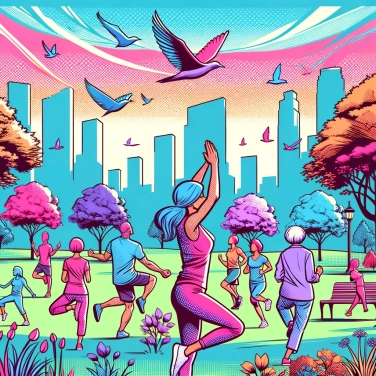When you drink too much coffee, the caffeine it contains can cause a constriction of blood vessels in the brain, which can lead to headaches.

When you drink coffee, caffeine acts directly on your blood vessels. Initially, it usually causes vasoconstriction, meaning it temporarily narrows the blood vessels. But after a certain time or when its effect wears off, your blood vessels can suddenly relax (vasodilation), leading to a rapid influx of blood to the brain. This abrupt change in the diameter of the vessels can cause or worsen headaches, as the brain is sensitive to these fluctuations in blood pressure. The more caffeine you consume, the greater the rebound effect of dilation will be, which explains the uncomfortable effects on your head after having too many cups of coffee.
Coffee increases urine production because caffeine stimulates kidney activity, prompting your body to eliminate more water and minerals. This additional fluid loss can lead to mild dehydration when you overindulge in coffee—you lose more water than you take in. And guess what? This mild dehydration can end up causing or worsening a good headache. It's the body protesting against the excessive loss of water and essential mineral salts.
When you drink too much coffee, excess caffeine increases the activity of your nervous system by blocking a molecule called adenosine, which normally calms and slows down the brain. As a result, your brain gets a bit too excited with racing thoughts, nervousness, and sometimes even an increased heart rate. This nervous hyperactivity generates muscle tension, particularly in the neck and head, which can cause or worsen headaches. Too much stimulation can also disrupt the quality of your sleep and intensify feelings of fatigue and head pain during the day.
When you drink a lot of coffee, you may find yourself urinating frequently. This is because caffeine has a slight diuretic effect that causes the body to eliminate more water. The more fluid you lose, the greater your risk of dehydration. And when you're dehydrated, your body loses not only water but also important substances like sodium and potassium, which are called electrolytes. Even a slight imbalance can quickly disrupt your body, cause tension in your head, and lead to that pesky headache.
Not everyone reacts the same way to coffee. Depending on your personal tolerance, you may experience very different effects, even with the same amount. Some people have an enzyme in their liver that metabolizes caffeine very quickly, while others do so much more slowly. If you are among those who eliminate caffeine slowly, it stays in your body longer: your risk of having a headache or experiencing unpleasant effects increases. Additionally, your regular consumption influences your tolerance. The more coffee you drink often, the more your body adapts to it, and the more you'll need to feel the same effects. This adaptation can also explain why you experience a headache when you exceed your usual dose or, conversely, when you suddenly reduce your daily intake.
Did you know that everyone has a specific enzyme called CYP1A2 that determines how quickly we metabolize caffeine? Your personal metabolism speed partly explains why some people feel the effects of coffee more strongly than others.
Did you know that a lighter coffee (less roasted) generally contains a bit more caffeine than a dark roast coffee? In fact, prolonged roasting slightly reduces the caffeine content of the bean.
Did you know that drinking coffee in moderation can actually provide temporary relief for certain types of migraines? This is due to its ability to slightly constrict dilated blood vessels, thereby reducing pain in certain situations.
Did you know that caffeine-related headaches can occur not only due to excessive consumption but also during abrupt withdrawal after regular intake? The pain often arises within 12 to 24 hours after stopping the usual coffee consumption.
Drink enough water to restore your hydration, rest in a quiet and dark place, and wait for the caffeine to gradually leave your system. If the headache persists, a mild pain reliever may be considered.
It is quite possible that you may have a caffeine dependency if you frequently experience headaches when reducing your usual intake. Try to gradually decrease your consumption to lessen these effects.
Yes, beverages such as green tea, energizing herbal tea, or certain protein smoothies can provide moderate stimulation without causing the same energy fluctuations and tension as excessive coffee consumption.
The recommended amount of caffeine generally ranges from 200 to 400 mg per day for adults, which is about 2 to 4 average cups. However, each individual reacts differently, so it is important to monitor your own responses.
Decaffeinated coffee contains much less caffeine than regular coffee, but it still retains a small amount. Sensitive individuals may experience headaches even with decaffeinated coffee. Additionally, certain additives or decaffeination methods can sometimes be responsible for these symptoms.

No one has answered this quiz yet, be the first!' :-)
Question 1/6